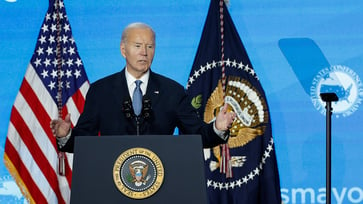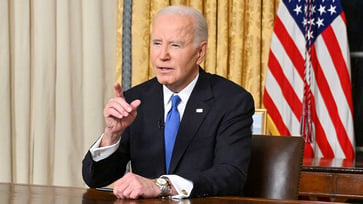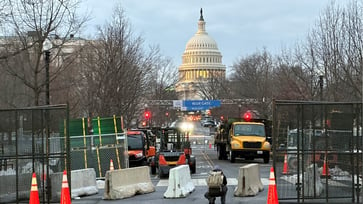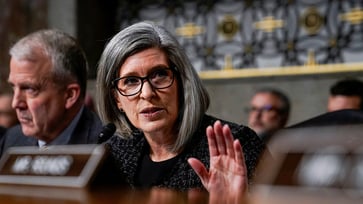The fall of Assad presents US officials with an opportunity to push for regime change in Iran.
One official warned that it's not a choice between now or never, but rather now or nuclear, as Iran continues to enrich its uranium stockpiles.
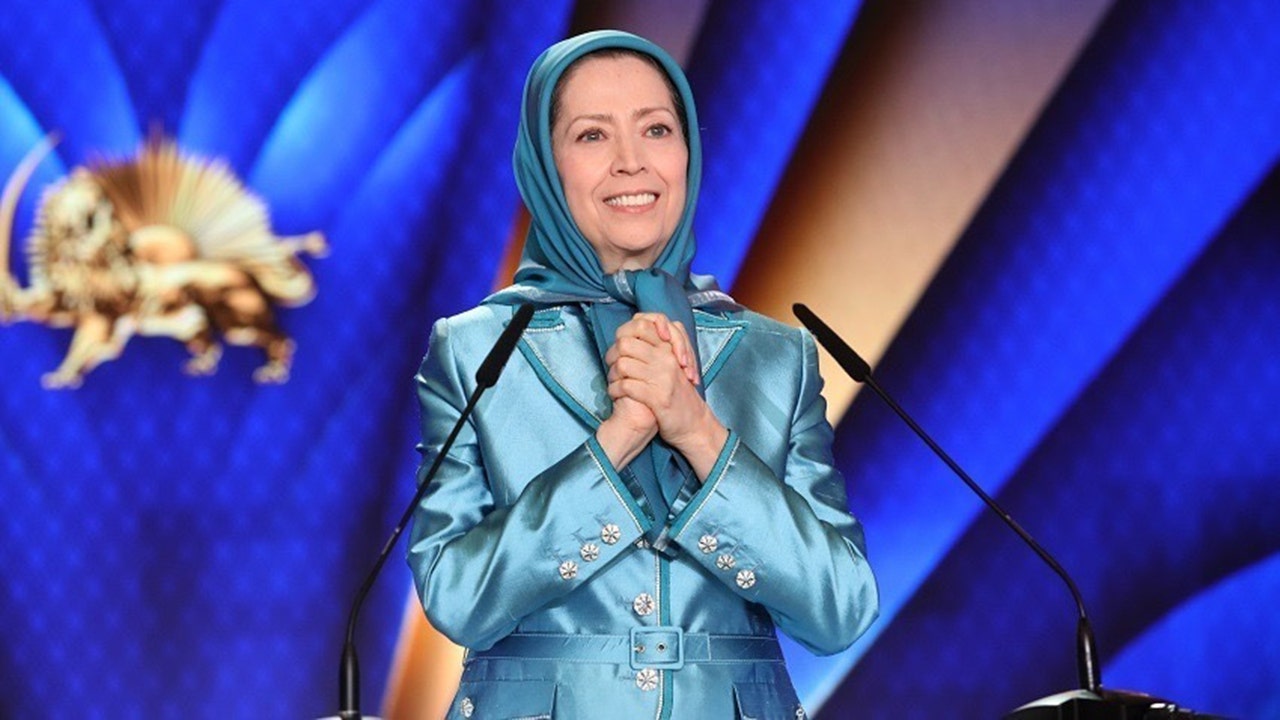
The fall of Syria's Bashar al-Assad and the upcoming White House have led Iranian resistance leaders and U.S. lawmakers to express hope that Iran will also overthrow its leadership with U.S. assistance.
According to Sam Brownback, former U.S. ambassador for International Religious Freedom, there is a high possibility of regime change in order to prevent a nuclear weapon from being developed in Iran.
"It's not just now or never, it's now or nuclear," he said, as Iran enriches uranium to levels close to nuclear capability.
A group of senators from both parties advocated for the removal of Iranian Ayatollah Ali Khameini, supporting a return to President Trump's "maximum pressure" campaign through sanctions and backing the Iranian resistance movement, which was absent during the first Trump administration.
Khameini has ruled Iran for 35 years.

At the event hosted by the Organization for Iranian American Communities, Sen. Cory Booker, D-N.J., stated that we have a responsibility to unite with our allies in putting an end to this regime's oppression.
"Sen. Jeanne Shaheen, D-N.H., stated that Iran is displaying only weakness and now is the time to focus on investing more in shared values such as democracy, human rights, and justice for all."
"For a long time, I have been clear in my call for regime change in Iran," said Sen. Ted Cruz, R–Texas.
In recent Washington, D.C. circles, there has been a stronger message than usual regarding getting further involved in the Middle East, where there has been little appetite for it.
The Texas Republican predicted that the ayatollah and mullahs will fall, and Iran will have free and democratic elections, signaling that change is coming and it's coming quickly.
"He stated that they would adopt a maximum pressure policy, sever the regime's access to resources from all directions, and shut down their nuclear research facilities and oil supply."
"Marc Ginsberg, former U.S. ambassador to Morocco, stated that there is a cottage industry in Washington promoting the goals and objectives of this regime. He added that Democratic senators have expressed their opposition to this effort, stating that it can be made bipartisan."
On Wednesday, Biden renewed a sanctions waiver that allows Iran to receive $10 billion in payments for energy from Iraq, in an effort to facilitate future nuclear negotiations and avoid helping to overthrow the ayatollah.
In October, when asked if he would like Iran to change its ruling system, Trump responded to Iranian American producer Patrick Bet David, "We can't get totally involved in all that. We can't run ourselves, let's face it."


"I hope Iran achieves great success, but they must not possess a nuclear weapon," he added.
Through supporting Iran's opposition, regime change is necessary for the U.S., as insisted by Brownback, a Trump appointee.
"He stated that we should politically support the opposition within Iran by providing them with equipment and information. He emphasized that the regime will not voluntarily leave power and that we must force them out."
The fall of Assad, who was heavily supported by Iran and its proxy force Hezbollah, is viewed as the ideal opportunity by Iran watchers to strike.
The shift in the Syrian government should signal to the Iranian people that change is possible in the Middle East, according to Gen. James Jones, former White House national security adviser and supreme allied commander of Europe.
"The change in administration has already caused tectonic shifts in geographic alignments," he continued. "Iranian regime does not do nuance."
The National Council of Resistance of Iran has elected Maryam Rajavi as its president-elect, making her the leader of the main resistance group in the country.
The resistance units, who are part of the Army of Freedom and the main force of change in Iran, are preparing an organized uprising, as the deeply discontented and angry people are supporting them.
Rajavi and her political group have a 10-point plan for regime change that includes rebuilding an Iranian government based on separation of religion and state, gender equality, abolition of the death penalty, and denuclearization.
"Our objective is not to take control but to return it to its rightful owners, the people of Iran and their vote."
Unlike the previous Trump administration, Iran is currently facing military attacks on other fronts through its proxies Hamas in Gaza and Hezbollah in Lebanon. It is uncertain whether this weakened position will cause them to surrender to U.S. pressure or retaliate even more. However, one thing is certain: If the U.S. were to support regime change, it would significantly increase tensions between Washington and Tehran, with unpredictable outcomes.
politics
You might also like
- On 'day one,' the Trump administration intends to initiate arrests of illegal immigrants across the United States.
- Louisiana Sen. Bill Cassidy supports Hegseth for Pentagon leadership under Trump.
- Donald Trump, the president-elect, has nominated a former Space Force commander to serve as the Air Force's undersecretary.
- The White House unveils Biden's record-breaking list of pardons for over 2,500 individuals.
- In Florida, Mayor Eric Adams and President-elect Trump had a meeting; Adams stated that they did not discuss his ongoing legal case.



